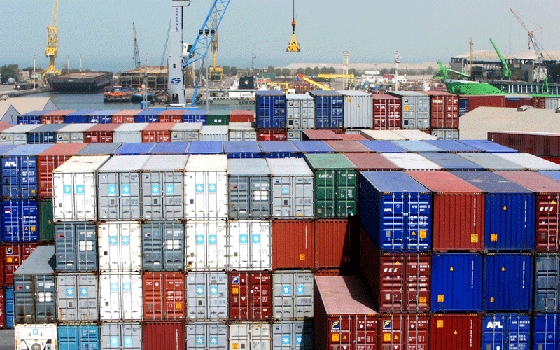The Institute of International Finance projected real GDP growth in the economies of the Gulf Cooperation Council (GCC) at 3.8% in 2013 compared to 5.8% in 2012. It forecast growth in the region's non-hydrocarbon sector at 5.1% this year relative to 5.8% in 2012 due to higher government spending and further recovery of the private sector. It expected major GCC oil producers to restrain production levels in 2013 in order to keep global oil prices from falling below $100 per barrel (p/b).
Further, it forecast non-oil growth at 9.4% in Qatar, at 7.9% for Oman, at 7.1% in Saudi Arabia, at 4.5% for Bahrain, at 4.1% in the UAE and at 2% in Kuwait.
The IIF projected the consolidated fiscal surplus of the GCC countries to narrow from 14.8% of GDP in 2012 to 10.3% of GDP in 2013 under the assumption of an average oil price of $108 p/b. It attributed the narrowing of the surplus to a decrease in oil production and prices. It projected the GCC's weighted average breakeven Brent oil price at $75.1 p/b in 2013 relative to $68.6 p/b in 2012 and $48.9 p/b in 2007, as government spending grew by an average annual rate of 15% since 2007. It noted that persistent increases in government spending in recent years significantly raised the budget revenue requirements and, for some GCC countries, increased vulnerabilities to a sudden and sustained drop in hydrocarbon prices. It projected the region's overall current account balance to fall from $389bn or 24.8% of GDP in 2012, to $334bn or 20.7% of GDP in 2013; and for the region's net foreign assets to reach $2.1 trillion, equivalent to 132.6% of GDP in 2013, compared to $1.8 trillion or 117.8% of GDP in 2012.
The IIF considered that the main downside risk to the GCC outlook is lower oil prices for a sustained period of time, as it would limit governments' fiscal policy space. It warned that a $23 drop in global oil prices to $85 p/b starting in 2014 would gradually narrow the consolidated GCC fiscal surplus and shift it to a deficit of 1% of GDP by 2016 and 5% of GDP by 2020.
It said that the UAE, Kuwait, and Qatar will be less affected by such a drop in oil prices than their GCC peers, given their lower breakeven oil prices and higher flexibility to reduce spending.
Institute of International Finance
22 May






















































